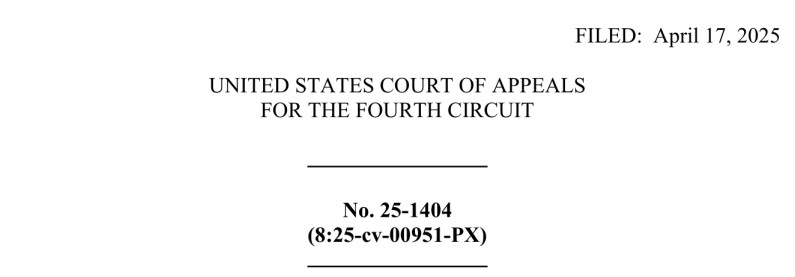Governing By Executive Order
 President Donald Trump started governing the country by executive order from Day One of his second term.
President Donald Trump started governing the country by executive order from Day One of his second term.
Since January 20, Trump has issued 137 executive orders. This compares with 162 executive orders issued by President Joe Biden over his entire four-year term and the 276 orders issued over eight years by President Barack Obama.
In issuing this explosion of executive orders, Trump and his Administration have been ignoring the rule of law and the Constitution’s separation of powers.
While this approach appears designed for the executive branch to bypass the other branches of our government, the judicial branch is not buying into Trump’s “One Branch Nation.”
Trump’s approach has resulted in 209 legal challenges (including four closed cases), with at least 108 court rulings that have at least paused executive actions.
The response of Trump and his Administration? Ignore court orders, attack plaintiffs, attack judges, including calling for their impeachment, and keep on issuing executive orders. Seven more were issued just last night, targeting civil rights protections, education, and university diversity standards.
Republicans controlling Congress just sit in silence while all of this unfolds.
The Administration’s failure to comply with the law became a focus of national attention with its admitted mistaken arrest and improper deportation of Kilmar Abrego Garcia.
This has turned the spotlight on Trump and his Administration’s deportation activities as they sent Abrego Garcia to a notorious prison in El Salvador without providing him due process and have done nothing to help return him to the United States despite court orders, including from the Supreme Court.
U.S. District Judge Paula Xinis, handling the Abrego Garcia case, said the Administration engaged in “willful and intentional noncompliance” with court orders and provided “vague, evasive, and incomplete” responses to requests for information.
Writing for a three-judge panel of the U.S. Court of Appeals for the Fourth Circuit, the widely respected and conservative Judge J. Harvie Wilkinson III, appointed by President Ronald Reagan, wrote a powerful opinion taking apart the Administration’s position in the Abrego Garcia case.
Judge Wilkinson’s opinion is well worth reading. Here are some excerpts:

[…]
It is difficult in some cases to get to the very heart of the matter. But in this case, it is not hard at all. The government is asserting a right to stash away residents of this country in foreign prisons without the semblance of due process that is the foundation of our constitutional order. Further, it claims in essence that because it has rid itself of custody that there is nothing that can be done.
This should be shocking not only to judges, but to the intuitive sense of liberty that Americans far removed from courthouses still hold dear.
[…]
The Executive possesses enormous powers to prosecute and to deport, but with powers come restraints. If today the Executive claims the right to deport without due process and in disregard of court orders, what assurance will there be tomorrow that it will not deport American citizens and then disclaim responsibility to bring them home? And what assurance shall there be that the Executive will not train its broad discretionary powers upon its political enemies? The threat, even if not the actuality, would always be present, and the Executive’s obligation to “take Care that the Laws be faithfully executed” would lose its meaning. U.S. CONST. art. II, § 3
[…]
It is in this atmosphere that we are reminded of President Eisenhower’s sage example. Putting his “personal opinions” aside, President Eisenhower honored his “inescapable” duty to enforce the Supreme Court’s decision in Brown v. Board of Education II to desegregate schools “with all deliberate speed.” […] This great man expressed his unflagging belief that “[t]he very basis of our individual rights and freedoms is the certainty that the President and the Executive Branch of Government will support and [e]nsure the carrying out of the decisions of the Federal Courts.” Indeed, in our late Executive’s own words, “[u]nless the President did so, anarchy would result.”
As President Eisenhower rightly noted, the failure of the executive branch to comply with court orders is a formula for anarchy.
It is also a page right out of an autocrat’s playbook.
____________
Fred’s Weekly Note appears on Thursdays in Wertheimer’s Political Report, a Democracy 21 newsletter. Read this week’s and other recent newsletters here. And, subscribe for free here and receive your copy each week via email.